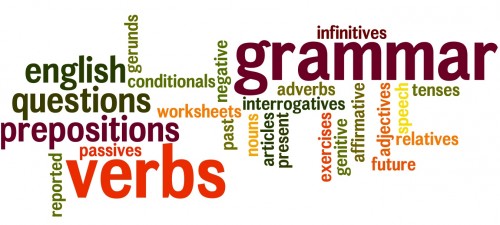
Good Grammar is Good Practice: 5 Mistakes to Avoid
Its a great day too be here at Largemouth; and we are glad, to welcome you to our blog.
Now, is it just me, or was that sentence infuriating?
Many of us in the public relations industry are self-proclaimed grammar nerds. It's a basic tenet of the job, right up there with spelling, working on deadline, and coffee drinking. Just as an engineer would never cross the red wires, a PR pro would never splice his or her commas. Proper grammar is a necessary tool of the trade.
Today is National Grammar Day, so it's a good chance to step back and consider the value of proper grammar as it enables good writing.
In PR, we often talk about messaging. In crafting a press release, social media plan, or media pitch, the messaging is the story the client wants to tell. The messaging serves as the foundation.
Here's where good writing comes in. If a release or social media post has errors -- be they fact, spelling, and, yes, grammar --– then it hinders the reader from getting the point. And, just like that, your client's credibility can take a hit.
Here are five avoidable grammar mistakes that writers often make.
- Comma splice: A comma splice is a fancy kind of run-on sentence in which two independent clauses are joined by a comma. To avoid this cardinal grammar sin, simply replace the comma with a period. Periods are your friend. When in doubt, just stop the sentence.
- Word choice: Words with similar sounds have different meanings: for example, "effect" and "affect." "Affect" is an action. "Effect" is the outcome. Consider the meaning of the word before using it, especially if there's another word with a similar sound and different meaning.
- Overuse of apostrophes: Only use apostrophes when showing possession or creating a contraction. Otherwise, do not use an apostrophe, because you will be wrong!
- Misplaced modifiers: Make sure you place modifiers as close to the word it is supposed to modify as possible. If there is too much space in between, your sentence's meaning changes.
- Subject-verb agreement: If you have a plural subject, you must have a plural verb, and vice versa. Don't leave anyone out of the action! Make your subject and verb match up so everyone gets in on it.
At Largemouth, we work with a diverse set of clients who are experts in their respective fields. As we craft messages to reinforce our clients as thought leaders, the importance of grammar becomes more salient.
Every little detail counts, so watch those apostrophes and respect the em dash. Don't let your participles dangle. Every word is a chance to make an impact.
